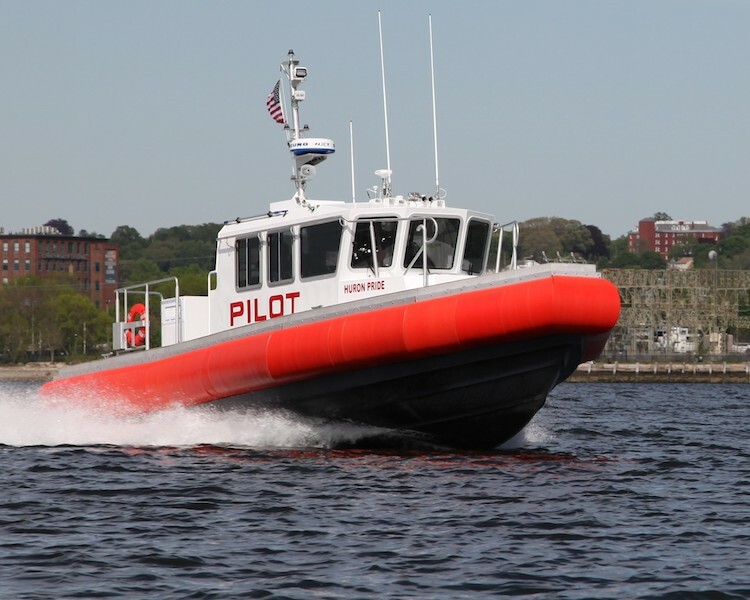In May, Gladding-Hearn Shipbuilding, Duclos Corp., delivered a new 42'6" pilot boat to the Lakes Pilots Association, Port Huron, Mich.
The Resilient-class high-speed launch is the Lake Pilots’ third boat built by the Somerset, Mass.-based shipyard since 1979.
Designed by Ray Hunt Design, the jet-driven, all-aluminum launch measures 42'6"x13' has a 2'6" draft. The deep-V hull features a steep 24-degree dead-rise at the transom that increases to a very fine entry forward. A flat chine and multiple spray-rails provide an efficient running surface and deflect spray away from the collar to produce a dryer ride and reduce collar maintenance. The perimeter of the launch is fitted with a large foam-collar fendering system. A heavy-duty pipe guard is installed across the transom, along with a platform above the launch’s waterjets.
The Huron Pride is powered by twin Cummins QSL-9 diesel engines, which are fully accessible through large lift-assisted deck hatches. The engines, each rated at 450 Bhp, at 2,100 rpm, turn a pair of HamiltonJet HJ-322 waterjets through Twin Disc 5082SC reverse/reduction marine gear boxes with 0.98:1 ratios. Fuel capacity is 300 gals. A Zipwake interceptor auto trim-control system will be installed on the transom. Top speed is over 37 knots.
“The vessel is an excellent summer complement to the Lakes Pilots’ 53-foot Chesapeake-class, burning half the fuel at higher speeds,” said Gladding-Hearn co-president Peter Duclos.
An aluminum pilothouse on a flush deck, with forward-leaning front windows, is set aft of amidships with 18" walk-around side decks. Access to the pilothouse is through the aft hinged door. The pilothouse has five Llebroc Stalker XT seats – four pilot seats and one helm seat – and a control console with instruments and controls. A porta-potty is installed in the forecastle. The launch is outfitted entirely with LED lighting. There's room for a captain and four pilots.
The Lakes Pilots’ pilot boat is the fourth Resilient-class vessel built since its introduction in 2005. The three vessels, operating in Texas, Virginia and South Carolina, have more than 45,000 combined operating hours of continuous service, said shipyard officials.




